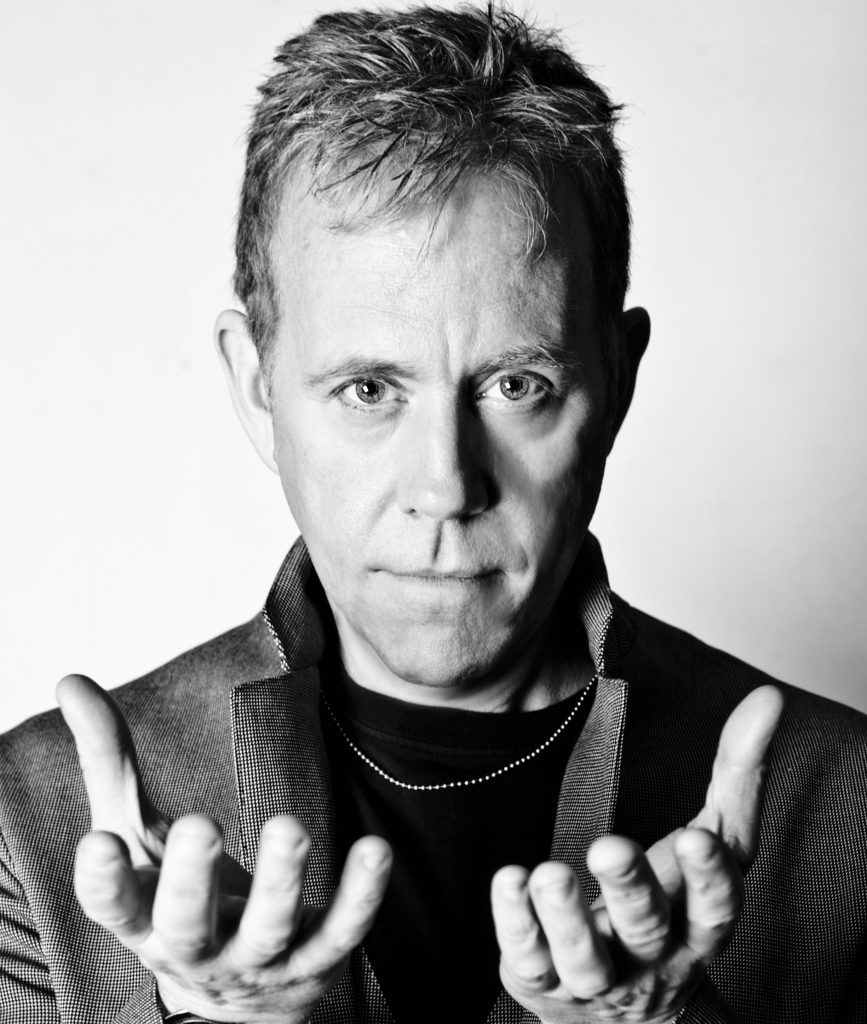
Some 16 years ago I first came across Phideaux Xavier and his band and was incredibly impressed not only by the music they were making but also by the fact he was giving CDs away to anyone who asked for them! Fast forward to 2020, and he has now made his complete digital catalogue available free of charge, so it felt the time was right to finally catch up, and ask him the serious questions, such as
Who, what and when is Phideaux?
When I was 13, I devised a “character” that I could be to make music. I used to be named Scott Riggs and it was not a name that I associated with my true self and so I wanted to create a larger than (my) life character who could make the type of fantastical music I loved to listen to. So, through a sequence of events, I came up with the name Phideaux Xavier and started making music under that name. Eventually, I realized that I needed to honour that by legally changing my name. There are many benefits to a name change – for those esoteric types, it is a psychic shift and can be understood through one’s “numerology”. I loved all those occult things and especially wanted to explore the fringes of music and society. There is so much hidden history throughout the ages from seekers of wisdom. I love Philosophy and science as well as the various spiritual disciplines and use my artwork to examine and integrate what I encounter.
When I was young, I was moved by The Beatles, Alice Cooper, Frank Zappa, and Jethro Tull. I was the youngest and my sister was a typical teenager who had the latest groovy records and I learned all about music from her. I admired Ian Anderson because the music of Jethro Tull seemed so singular and visionary and I felt Ian’s personality come through. I wanted to be a musical visionary. I was never attracted to excellent instrumentalists. That’s not to say that I don’t love a great Wakeman keyboard solo, but I was more excited by the concepts and thoughts in the albums I was consuming. Especially I loved the album artwork. Rock and Roll was a whole package. The booklet in Magical Mystery Tour, the Tull newspaper, Zappa liner notes… These were the texts of a new esoteric tradition, one whose authors included Roger Dean, Paul Whitehead, Hipgnosis, Vaughan Oliver. I wanted to contribute to the canon of Rock LPs.
I was never good at engineering and although I made tons of recordings, my work remained forever primitive until I started working with Gabe Moffat and stepping up the production of my albums. I’m fortunate to know many artists and musicians from my youth and they primarily contribute to the work I’ve done thus far. So, at this point, Phideaux is me, but it is also a body of work over several disparate, eclectic albums.
What are your earliest musical memories and who/what inspired you to start playing music and what motivates you now?
As I said, my sister was playing records in the house when I was a kid. My mother was also always listening to Jazz piano music and my brother brought the soul records home. I took guitar lessons at a community centre when I was 10 (with a guitar I pinched from my sister who had lost interest) and that teacher introduced me to Genesis and Renaissance and taught me about open chords and arpeggiated picking. By learning to play Donovan, Renaissance, Moody Blues I recognized how songs were put together and set about devising my own. I then was urged to get an electric guitar by my flute playing friend Amanda Lynne (an excellent artist who is doing some work for future album covers) and we joined with our friends Molly and Linda to make a band called Mirkwood. From there, we added Valerie Gracious and morphed into a new wave band called Sally Dick & Jane. Once college beckoned, that project ended, and I started making tapes where I would play all or most of the instruments. That is when I started making outsider alt pop and more experimental stuff. From there I got multitrack decks as they became affordable and started trying to create professional grade music. I was never very good at playing instruments and my stuff was very messy. I tried to make an album (Friction’) but it didn’t rise to the sound level that I’d hoped, and I got swept up in my day job and stopped making music for a decade.
When did you start performing, what is the story behind the recording of ‘Friction’, and then why did it take so long for ‘Fiendish’ to appear?
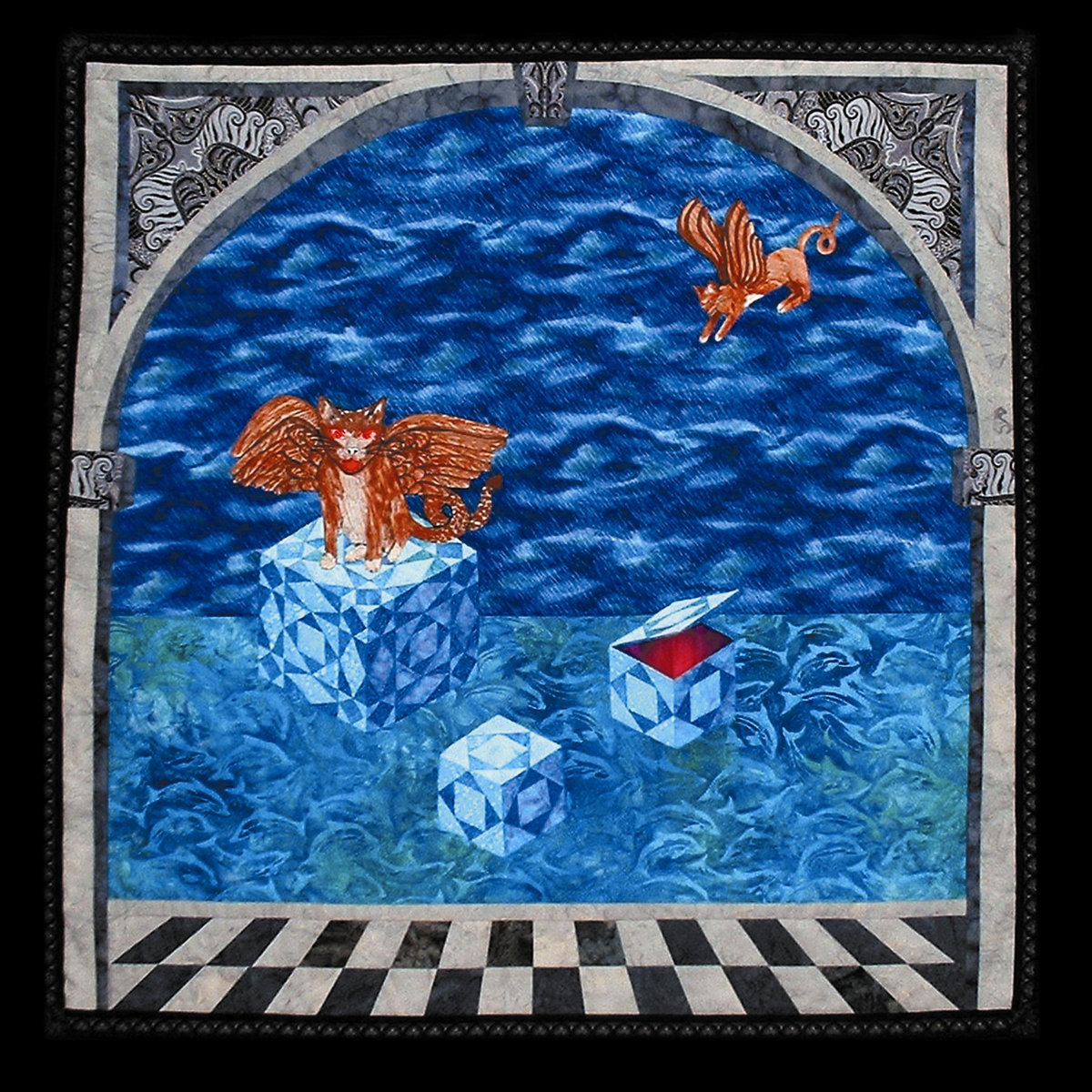
In the early 90s as I tried to engineer myself, I made several recordings which formed the basis of my album Friction. At the tail end of that process I decided to simplify things and return to working with acoustic guitar. To that end, I enlisted my friend Ariel Farber and her husband Will to form a band called The SunMachine. It was essentially a “folk/progressive rock” thing. We didn’t have a drummer, but Will doubled on percussion, keyboards, sax and guitar. His multi instrumental capacity allowed for an expanded sound and we added a flute player and bassist, created a repertoire, and played various NYC clubs. Eventually, I felt the pull of electricity and wanted to work in a more rock/glam mode. I’d just produced a song for another artist and met a drummer named Rich Hutchins, or Bloody Rich as he is known. He was the perfect musical brother because he understood glam and progressive rock like Tull and Alice Cooper/Bowie, but was also deeply immersed in punk rock attitude, which I found very attractive. I never liked things that were too musicianly and preferred a primitive approach. However, I loved the classic 1970s production, especially the British stuff. So, Rich and I created and rehearsed an album called ‘Ghost Story’ in 1995/96. After the recording of that album, I was disappointed by the mix and abandoned music as I left for California to work in Television production. It wasn’t until 2001 that I was able to contemplate music again. So, despite having abandoned our previous work, I contacted Rich, who was gracious enough to work with me again, and we embarked on what would become ‘Fiendish’. Once again, I was disappointed with the mix and feeling frustrated asked my friend Gabe Moffat to mix the album. The results of that were so great that I was then able to retrieve ‘Ghost Story’ from the dustbin and upgrade that album. So, in truth ‘Fiendish’ is the third attempt and ‘Ghost Story’, which was my official 2nd release, is truly my first album (proper).
How did the band evolve, as many of the people who worked on ‘Fiendish’ have been involved in your music throughout your career?
The “band” Phideaux evolved because I was asked to perform live in France at Festival Crescendo. And upon receiving that invitation, I contacted the various people who had played on the albums and asked if any were willing to come and play live. I got 9 replies in the affirmative and so a 10-piece ensemble was created. As we rehearsed for the concert, it all seemed to gel together because 7 of us had grown up in the same small New York village so we had a lifelong history. The additional 3 guys were probably both intrigued and put off by this, but it was easy to create the chemistry. After Crescendo, I wanted to make an album with only those 10 people and ‘Number Seven’ was born. In fact, it was during the ‘Number Seven’ sessions that I changed my method of recording. Previously, it would just be myself and Rich (my drummer) recording the basic tracks and everyone else was overdubbed later. With ‘Number Seven’ we started the process of recording with most of the band simultaneously performing. That is one of the reasons I love ‘Snowtorch’ (the follow up to ‘Number Seven’) because it’s got a lot of live playing.
How did Matthew Kennedy become involved, as many people will recognise him from Discipline?
When I made ‘Fiendish’ I asked two people to produce the album – first Mathew Parmenter of Discipline and then Kramer, who has a long and distinguished career as a producer and had played with Daevid Allen and made some very peculiar and wonderful albums. Mathew turned me down, but he was encouraging of my music and I ended up sending him the various albums as I made them. He was playing one of them on a car trip with Mathew Kennedy who then reached out to me on MySpace and we became friends. When I was recording ‘Doomsday Afternoon’, I was looking for some extra input and since I’d played most of the bass on my previous albums, I didn’t have a “go to” guy for bass. So, I thought it would be a fun experiment to ask Mathew to play bass on the ‘Doomsday’ album. We’d never met in person, but I went to meet him at the airport and we came immediately to my house where Gabe and I plugged him into the Pro Tools session and Mathew just played the album from beginning to end. He’d done his homework, knew the whole thing and just played it all straight through. So, obviously that was love at first sight!
How would you describe your music to someone who has not previously come across it?
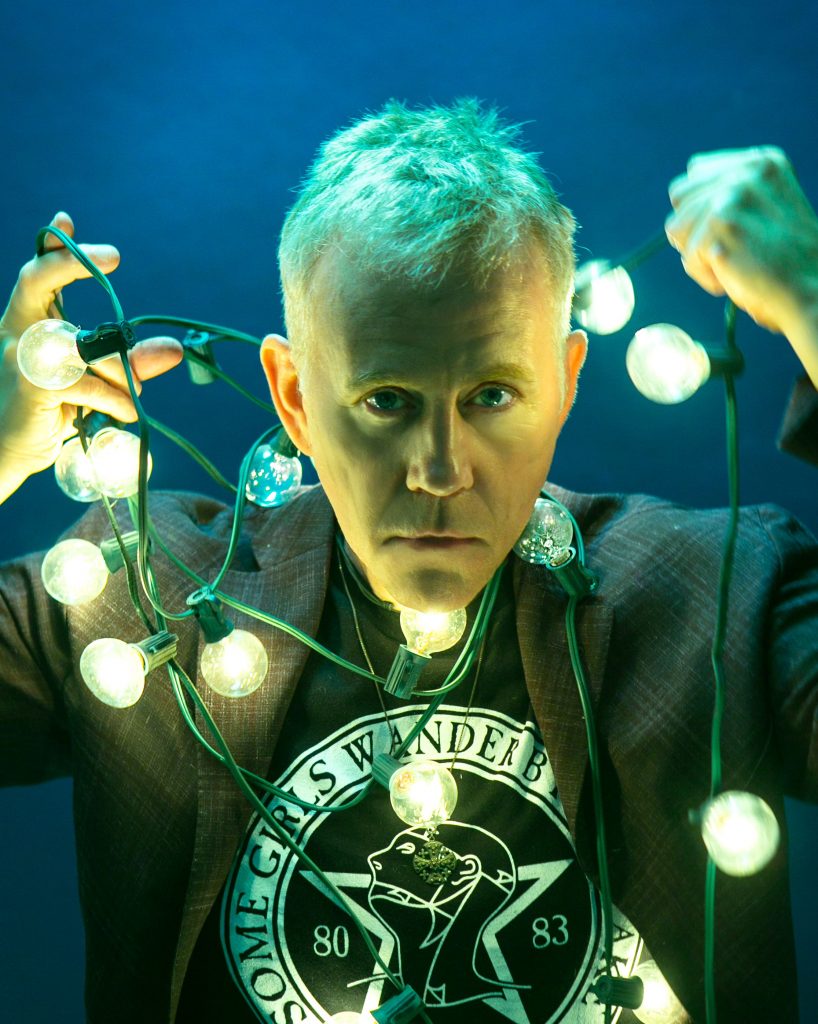
I would describe my music as eclectic, humour, pretentious, psychedelic, progressive rock with an emphasis on texture and studio effects. Possibly as headphone candy. It is doomy, mournful, sad and tragic, but occasionally uplifting. I shy away from major keys and I love my 60s and 70s, but there are sometimes hints of the 80s. I’m definitely “retrogressive rock”. For the most part, I like melody and music that seems familiar but has a twist. I seek to align with the western canon of rock music, especially from the United Kingdom. I have no interest in creating some new progression of atonal, jazz or to reinvent like Bartok. I am strictly pop rock music with aspirations, you will find me next to I ‘Talk To The Wind’ – not ‘Starless And Bible Black’.
Why the gap after ‘Snowtorch’?
After ‘Number Seven’, there was a plan to make an album of “odds and sods” called ‘7½’. We had two unreleased songs, “Tempest Of Mutiny” and “Out Of The Angry Planet”, as well as “Strange Cloud” which had been recorded for a Musea compilation project about Dante’s Purgatory. There was an outtake from ‘Number Seven’ as well as two re-recordings of earlier songs from my unofficial first album ‘Friction’ which would have formed the structure of ‘7½’. However, as luck would have it, we started another piece while recording “Strange Cloud”. I had a habit of booking a full weekend to record a small bit of music. And so, in order to maximize my time with my band mates, I would often prepare other things for us to record. At the session for “Strange Cloud”, we also recorded a work in progress called “Star Of Light”. It was basically the first 10 minutes of ‘Snowtorch’ as well as the last 5 minutes. It was too long to be on the odds and sods album but seemed like a whole project in and of itself. As we were working on finishing ‘7½’ I got distracted by the idea of expanding “Star Of Light” and we moved our attention to that process. I figured “Star Of Light” which became ‘Snowtorch’ was more “of the moment” and it would be ideal to put out a fully new, holistically conceived work rather than a collection of bits and pieces. ‘Snowtorch’ was completed relatively quickly and at the same time we were offered to perform at RoSfest in USA, which was a prestigious festival. Getting the band together to rehearse takes a lot of planning and effort and often during that time, recordings fall by the wayside.
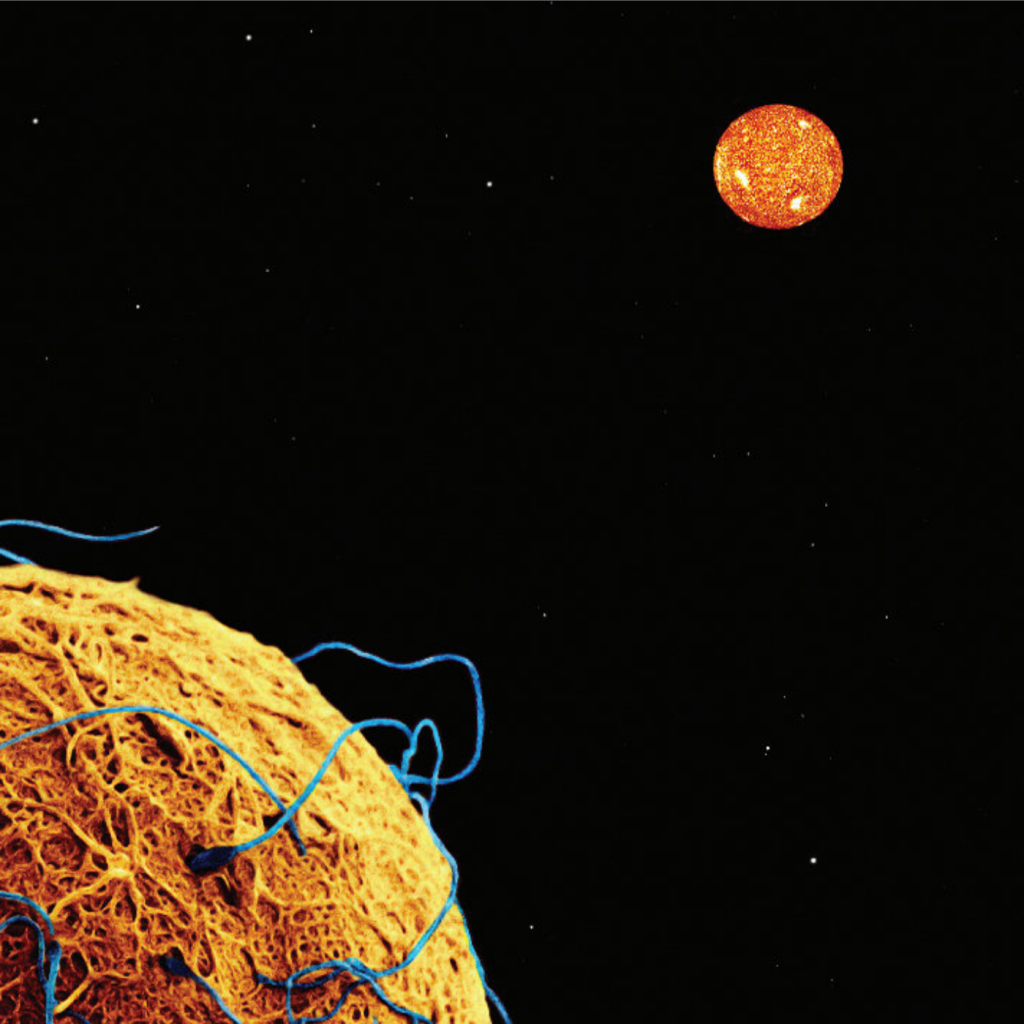
It was while playing RoSfest that I kept getting asked when we would release the final part of the Doom Trilogy. What people may not realize is that when we play live the songs are quite different from the albums. That’s mostly due to the idea that a lot of studio trickery goes into the albums that won’t translate in a live arena. Live is a different beast, so I am always looking for a way to reinterpret the songs. Plus, by the time you play music live it evolves. Since we are not a live band by nature, we don’t have many gigs (10 people can’t fit on that many stages). So, we really explore the music in the recording studio for the first time, which means that it might be slightly undercooked. Strategies to finish an album are often in the realm of production vs. performance, but you can’t rely on that live, so we change things up. I remember going to see Gentle Giant when I was a kid and marvelling at how different the songs were when they played them live. That made an impression on me.
It was during RoSfest that I realized that we had added bits and pieces to the music of “Great Leap” and “Doomsday” and that I could use those band created moments to form the basis of the third part of the trilogy. So, after RoSfest, I started writing ‘Infernal’. During this time, I’d also worked on a side project called Mogon, which I had recorded (but not finished) two albums. So, those were also side-lined in favour of ‘Infernal’. We recorded the basic tracks for ‘Infernal’ in 2012, but the completion of the album was delayed by various day job requirements and it ultimately took 7 years to finish. In the middle of that time, I put out an unofficial “sampler” of some of the unreleased things (which you can find on my Bandcamp). It was simply called “Phideaux Mogon Bloodfish Promotional Issue” and included some live works as well as songs from ‘7½’ and the two Mogon albums. So, technically there was something about two years after ‘Snowtorch’, but it was not an official album.
However, ‘Infernal’ was a great learning experience for me and I got a little bit possessed in the recording and refining of the album. I think I went to the same place Brian Wilson went with ‘Smile’ – a nearly Twilight Zone where you get so into an album you almost can’t find your way back out. Luckily, I was able to emerge and release the darned thing. I love Infernal and am glad it took the time it took.
Right now, we are mixing a live album containing a selection of various performances through the years, which will include much of ‘Doomsday Afternoon’ as well as the ‘Chupacabras’ recording that was on the Promotional Issue. I’m also recording a “solo” album, which is separate from the 10-piece band. The Mogon albums are still in play and not only will ‘7½’ come into existence, but it now has a sister album provisionally titled ‘Informal’ which is a companion piece to ‘Infernal’. Life marches on and I’m trying to get into my archives and use this “down” time to finish my older projects.
How would define the difference between Mogon and Phideaux and why did you feel the need to separate the two?
While I was recording ‘Snowtorch’, I had a few days in the studio recording a track for a compilation album about Dante’s Purgatory. The session was Rich Hutchins on drums, Mat Kennedy on bass and Mark Sherkus on keyboards. Mark had to catch an earlier plane than the other two and when he left, his keyboard rig still set up and we had a couple hours left in the studio. I told Rich and Mat and Gabe (engineer/producer) to give me 20 minutes and then come back and we would record a “new” song – one I would invent in those 20 minutes. What emerged was a track called “The Chairs” (homage to Eugene Ionesco’s brilliant play). I invited the gents back and briefly gave them the chords and “whispered” the changes as we recorded the first takes. Those whispers became an integral part of the track. The track was a bit more 80s – New Order, Sisterhood, Magazine influenced, and I realized it was not exactly “Phideaux” music. The word that popped into my head was Mogon and thus was born a new side project. A smaller, simpler, more direct, and less laboured style of music. I later undertook a full session for only Mogon music. I think we did 2 or 3 sessions dedicated entirely to Mogon related music. There will be 3 Mogon albums in all. Unfortunately, between work and my general methods of perfectionism, those albums may take a while to find their release. However, you can hear some tracks on a free download called “Bloodfish Promotional Issue” – available on Bandcamp.
You have made all of your digitally available albums free of charge, how and why did that decision come across?
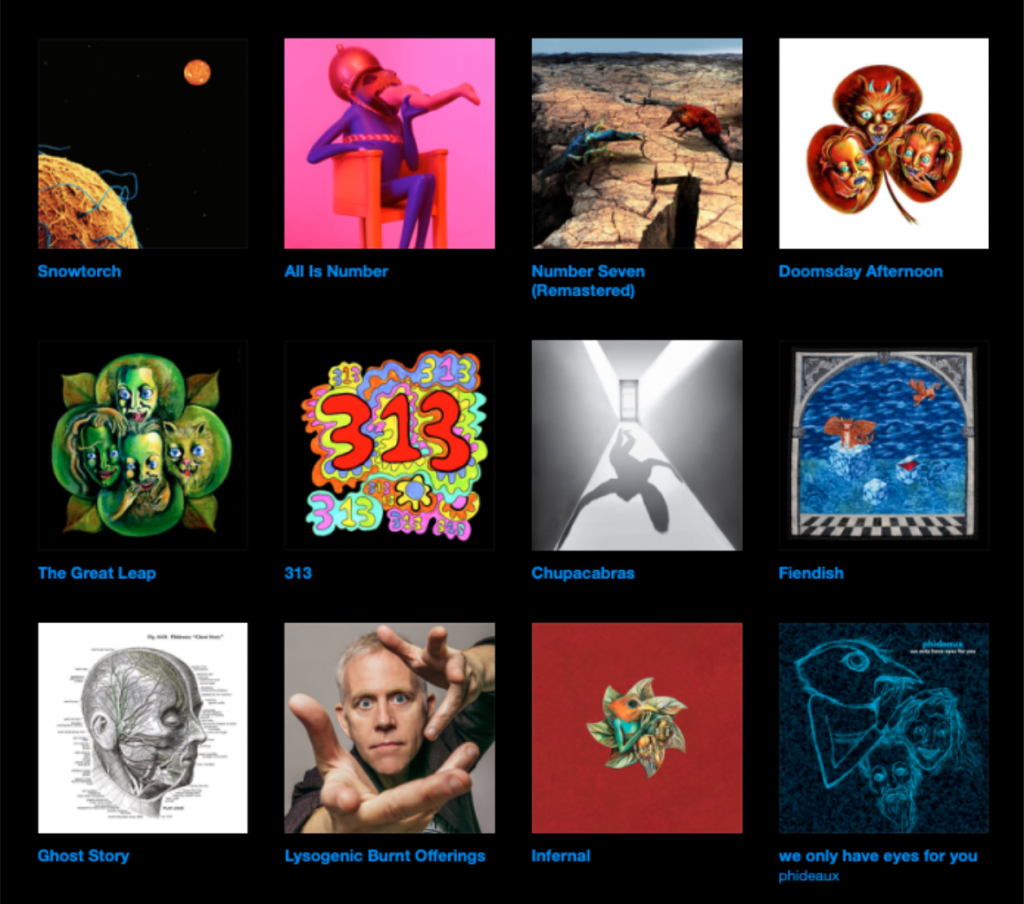
My objective has never been to make money per se. So, when the virus caused mass lockdowns, I thought people might be bored and through their internet trawling come across my work. To that end, I thought it would be ideal during a time when people were stressed for cash to let my work be heard for free. I think people will support the artists they love, and I was just trying to spread the love in return. I hope it introduced my music to a new set of listeners. And I hope they will pass it along.
If someone has a look at all those albums, but hasn’t previously come across their music which ones should they start on and why those?
When I look at my music, there are “charmed” albums and “laboured” albums. The “charmed” albums are those whose songs seemed to suggest themselves to me, whose very existence seemed to spring forth will little interference from me. Those albums (for me) are ‘Doomsday Afternoon’, ‘Ghost Story’, ‘Snowtorch’ and ‘Infernal’. Then, there are the albums whose existence is a bit more fraught, a bit more “laboured”. Those albums would be ‘Fiendish’, ‘Chupacabras’ (although the song itself is “charmed”), ‘313’, ‘The Great Leap’ and ‘Number Seven’. They are attempts, hopes, wishes not quite fulfilled. The audience seems to agree…
What’s next?
I have so many things I want to do, both with my archives as well as finishing my newest “solo” album. This album has been in the works for the last 3 years and has grown into a bit of a sprawl. However, I took a break and was working on my ancient archives recently. It gave me some perspective and I think I now have a path forward on this new album. So, be on the lookout for some new and re-released material in 2021. I had hoped for a 2020 Doomsday reissue, but the virus and money issues put that on the back burner. However, we are excited to use 2021 and 2022 as years for productivity. Stay tuned, wish me well and let’s hope life returns to normal soon. I Have a feeling ’21 is gonna be a good year…
I do want to highlight a few videos we recently put out. One was a photo montage from the recording session for “Love Theme From Number Seven” which is a fun film Mathew Kennedy made from footage and photos. Also, he edited a live tape of “Chupacabras” that we performed at Festival Crescendo in France in 2007. I recommend both those videos if you want to see some visual Phideaux music. Aside from that, be on the lookout because there is a lot more music coming, it just takes time.
Interview by Kev Rowland Author of The Progressive Underground Series
Phideux online



